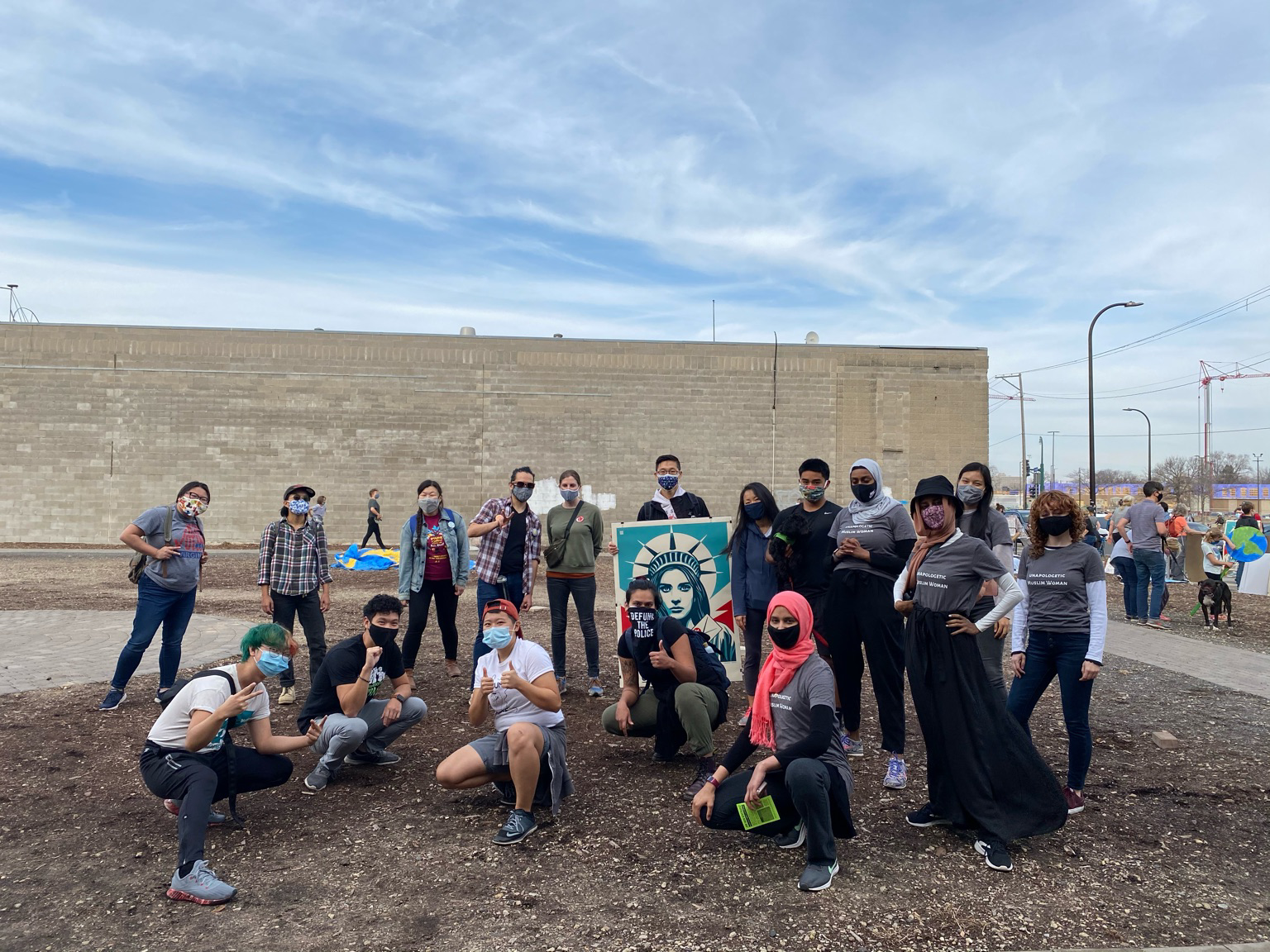
What you can do right now to combat anti-Asian racism
- Speak up. Denounce anti-Asian racism and hate. Tell institutional leaders to speak out.
- Name the racism. The media narrative is already laying blame on Asian women. We must be clear — the attacker specifically targeted known Asian businesses and killed Asian women. This is clear racism, xenophobia, and misogyny.
- If you experience or witness discrimination or hate, report it to the MDHR Discrimination Helpline – 1-833-454-0148
- Include anti-Asian racism in your overall anti-racism analysis and work.
- Support your Asian American friends, families, and neighbors. Let them know you are there for them. Offer to be with them in public spaces.
- Contact your Minnesota State legislators to support HF 1691 | SF 2003 to clarify hate crimes and provide support for victims and community responders.
- Attend a bystander training.
- Support a local Asian Minnesotan organization. (This is not a comprehensive list, but a starting place)
- Sign the People’s Petition for a new Department of Public Safety in Minneapolis. (Minneapolis residents only)
- Learn more about the grassroots groups across the country who are combating hate at MovementHub.
Resources
The Movement Hub
Here you’ll find resources created by community groups, members, and thought leaders as well as links to AAPI groups currently tracking hate incidents across the country.
MN Asian Safety Squad
We will organize community patrols in predominately Asian areas so that Asians can feel safe. Upon request, we will send someone to escort you or a loved one within the Twin Cities Metro.
Self Advocacy Pack
The SEAD Project’s self advocacy pack contains educational information and resources to help you and your community in times of crisis.
Bystander Training to Stop Anti-Asian Hate
In response to the rise in Anti-Asian/American and xenophobic harassment, Hollaback! and Asian Americans Advancing Justice | AAJC are offering a free bystander intervention training and a de-escalation training to meet this moment.
Asian American Solidarity and Anti-Black Racism Timeline
Though Asian American communities have often been complicit in upholding and benefiting from anti-Black racism, our histories also include examples of solidarity, including instances where Black communities have shown up for us that it is critical to remember.
Policy Recommendations for Addressing Hate Violence
This policy recommendations guide is a collaborative effort by Asian American-serving organizations to provide forward-thinking and practical policy solutions to address violence against Asian American communities for policymakers, survivors, and allies.
What we’re reading:
- Resources and Solidarity Practices Twitter Thread
- On Anti-Asian Hate Crimes: Who Is Our Real Enemy?
- Washington Post interview 3/8 Erika Lee Helen Zia
Some points to remember:
This was a racist act of sexual violence against Asian women. Racist stereotypes about Asians, combined with hypersexualization of Asian women puts our sisters who work in highly vulnerable and low-wage jobs at heightened risk from racialized misogyny.
What happened in Georgia does not stand alone. This attack is part of a pattern that follows a long history of anti-Asian racism and hate. It is not just interpersonal but also entrenched in racism, xenophobia, and misogyny. In the past year alone, we have seen an over 150% increase in anti-Asian violence, which only includes those reported. This has looked like violent attacks that disproportionately target children, women, and the elderly; verbal harassment in schools, private businesses and public spaces; the deportation of 33 Vietnamese community members this week; and the police killing of Christian Hall and Angelo Quinto this past winter.
We are seeing similar incidents here in Minnesota, including:
- Physical violence on the streets, in grocery stores, on shared transportation, and in other public places
- Elders and women being targeted
- Racist language on people’s property, derogatory name-calling
- Bullying in schools
- Discriminatory service
- Government leaders at the local level using derogatory language like referring to COVID-19 as the “China Virus”
Violence against Asian and Asian Americans is not new. Anti-Asian racism has occurred since Asians first immigrated to the United States, from the Page Act of 1875, the Chinese Exclusion Act of 1882, the incarceration of Japanese Americans during World War 2, to the surveillance targeting Muslims and South Asians after 9/11, and the continued deportation of Southeast Asians today, there has been a longstanding history of anti-Asian sentiment, xenophobic rhetoric, and anti-immigrant policy in the U.S. The scapegoating of Asian Americans during the COVID-19 pandemic is a continuation of this systemic racism.
Racist stereotypes about Asians as easy targets, combined with hypersexualization of Asian women, keeps fueling attacks against the Asian community.
Economic scarcity in under-resourced communities is contributing to violence among communities of color. We should not have to compete for basic needs.
All people deserve to feel safe going about their daily activities–going to work, shopping for groceries, walking in the neighborhood. We are not truly safe until everybody feels safe.
We need right now:
- Greater investments into communities in need and new systems of public safety that keep us all safe.
- Systems of abundance, where everyone has what they need to thrive.
- Cross racial-solidarity, knowing that the fate of our communities are tied together.
- A society is rooted in love, belonging, and joy instead of white supremacy and anti-Black racism.